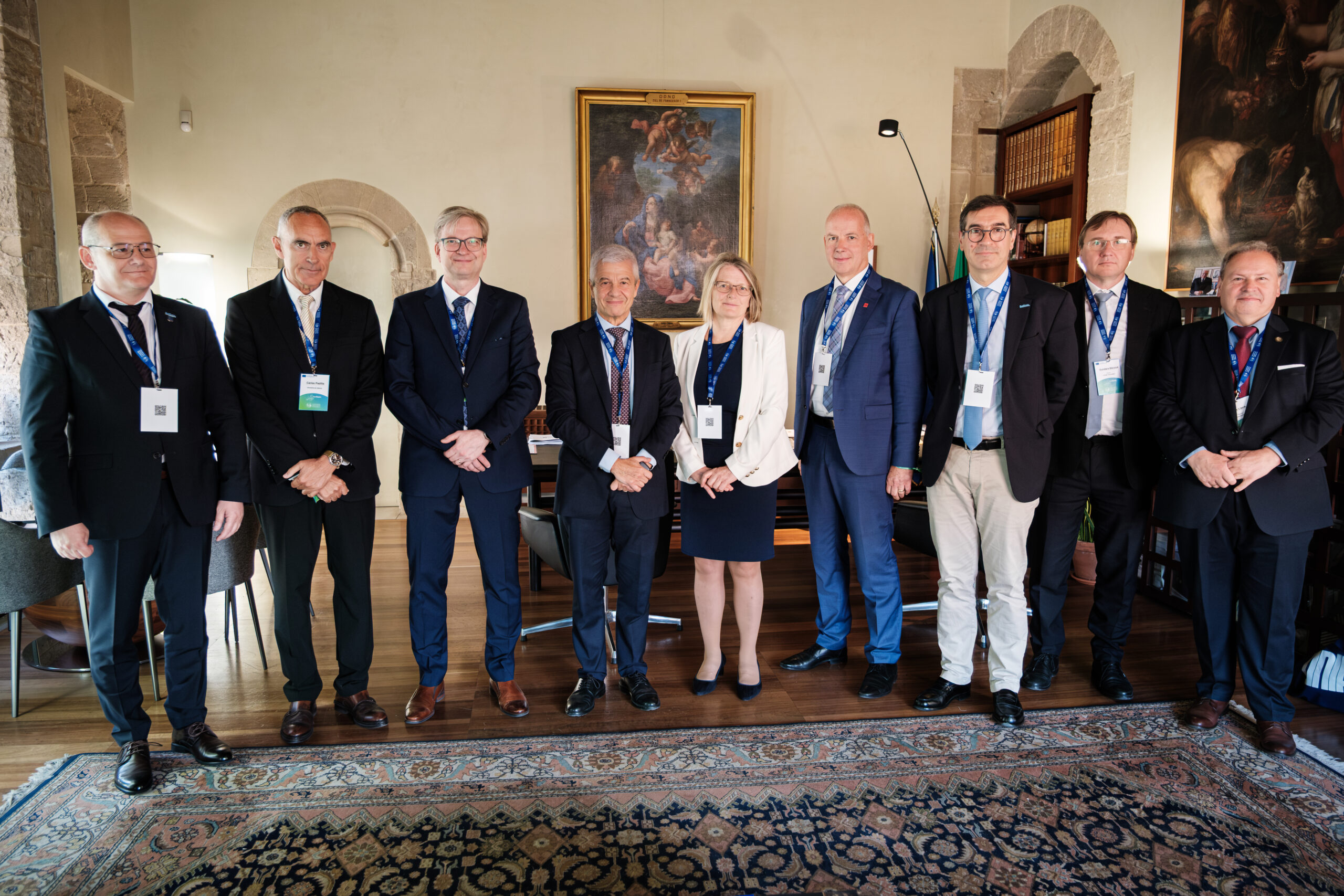
With its new strategy for transnational higher education, the FORTHEM Alliance intends to deepen intercultural exchange, increase mobility and empower students and academics at all stages of their career path within a dynamic European network.
Over the past two years, the FORTHEM Alliance has developed a new strategy for transnational interaction at the academic level up to 2030. The process of building and negotiating the strategy involved many experts. Members of all joint structures – including the Presidency, the Steering Committee and the Coordinating Committee – joined forces with representatives of the Mission Boards, the Students’ Union and the General Secretariat. They collaborated with experts in strategic development and institutional change from partner universities. The aim was to create a more efficient, targeted approach to guide the FORTHEM Alliance from the pilot phase through the critical consolidation phase to the stable and promising future.
It was a complex and challenging endeavour to reconcile the different needs of individual universities, shaped by their national and regional contexts, while formulating a coherent vision for an enduring common future and taking into account the profound social and geopolitical challenges of our time. On 28 April, the FORTHEM Alliance Steering Committee, comprising Vice-Rectors responsible for the areas of research, education and cooperation with the socio-economic environment, gave their final approval to the strategy at the meeting in Opole, which was then officially adopted by the Presidency and the Students’ Union on 13 May in Palermo.
The transnational FORTHEM 2030 strategy presents a bold vision for the future of European higher education, research and regional engagement through strengthening transnational cooperation, integrated learning and future global partnerships. With a strong emphasis on mobility and intercultural exchange, the strategy supports the development of talent on a dynamic, multilingual European campus, while empowering the next generation of creative researchers and responsible citizens.
Alongside the tangible outcome – the adopted strategy – the process of working on this document has confirmed the functionality of the existing structures in the Alliance that have been established over the years. Dr Nicole Birkle, one of FORTHEM’s two Alliance General Secretaries and a member of the team responsible for developing the strategy, emphasises, ‘It was great to see how well-functioning management bodies worked closely and effectively with ad hoc working groups and experts’.
The next steps are to bring the strategic guidelines into the reality of each of our universities, to continue relevant implementation actions and, in some cases, to initiate new ones. The aim is to transform the institutions and embed FORTHEM even more deeply in the university DNA. Dr Barbara Curyło, coordinator of FORTHEM’s work area on joint structures and head of the team responsible for developing the strategy, explains, ‘We are looking to the future with enthusiasm. Building on the foundations we have already laid, we will be able to address further issues, such as more structured engagement with global partners, in a more systematic way. The relevant working groups have been set up and our strategy team will continue to work closely together’.
Describing the process of developing the strategy, Prof. Daniel Pietrek, Vice-Rector for Research and current Chair of the Steering Committee, states, ‘This has been a really intensive period during which both the Steering Committee and we, as the entire FORTHEM Alliance, have been working on the strategy. Together, we conducted extensive SWOT analyses, assessed and critically analysed our achievements to date, and pointed out goals not yet met. In lively discussions, we also set out the strategy and next steps for the coming months. We hope that all universities – and even more so all our target groups – should find themselves in this strategy and feel part of it’.
Prof. Jacek Lipok, Rector of the University of Opole University, summing up this next milestone in the cooperation of FORTHEM partners, points out, ‘The name of the alliance obliges – FORTHEM – FOR THEM. We work for THEM; for students, academics, administrative staff and also for our external partners. So that everyone sees FORTHEM as their space of opportunity! After all, we understand that by working ‘for THEM’ we are working for ourselves – for the newly defined international academic community’.